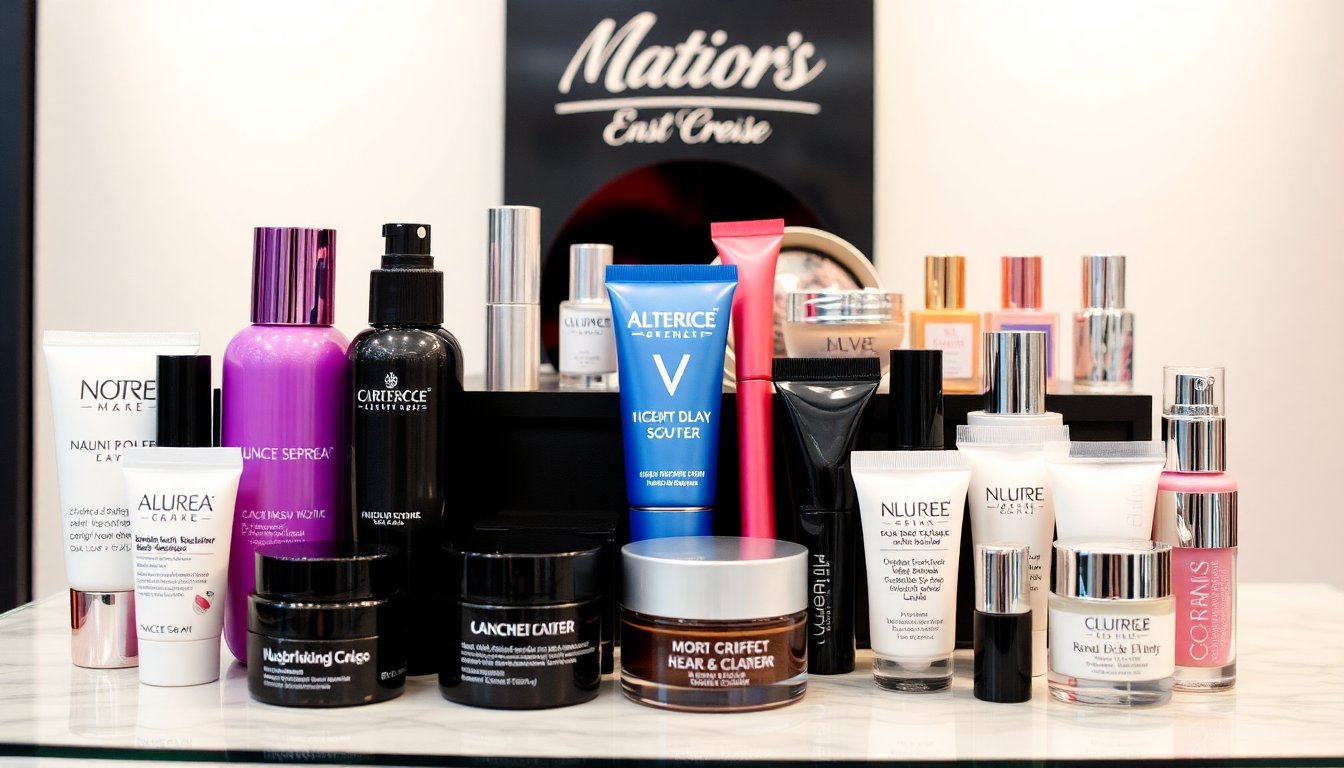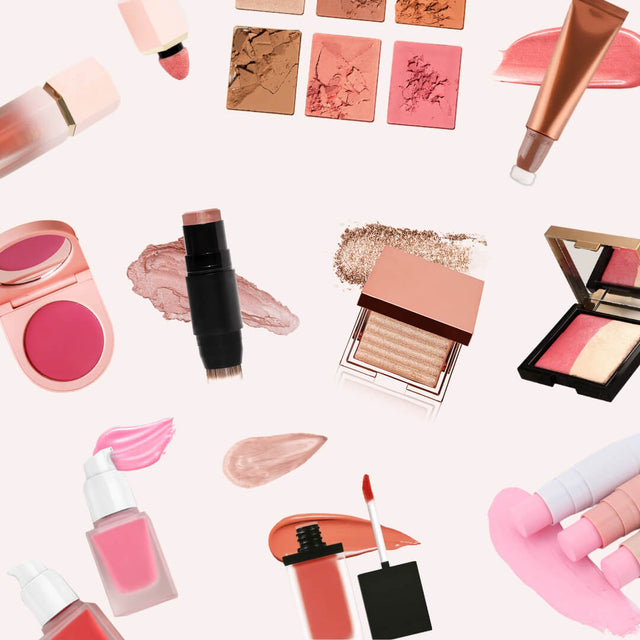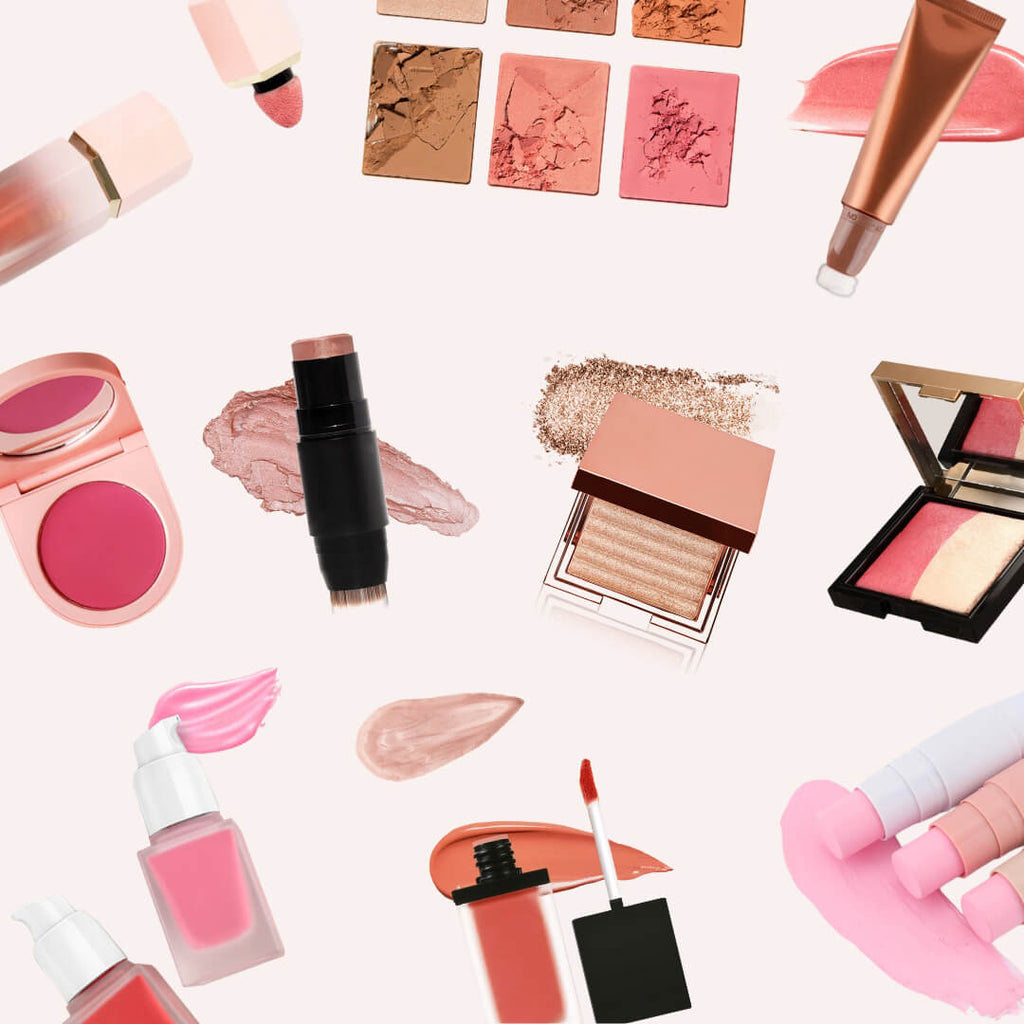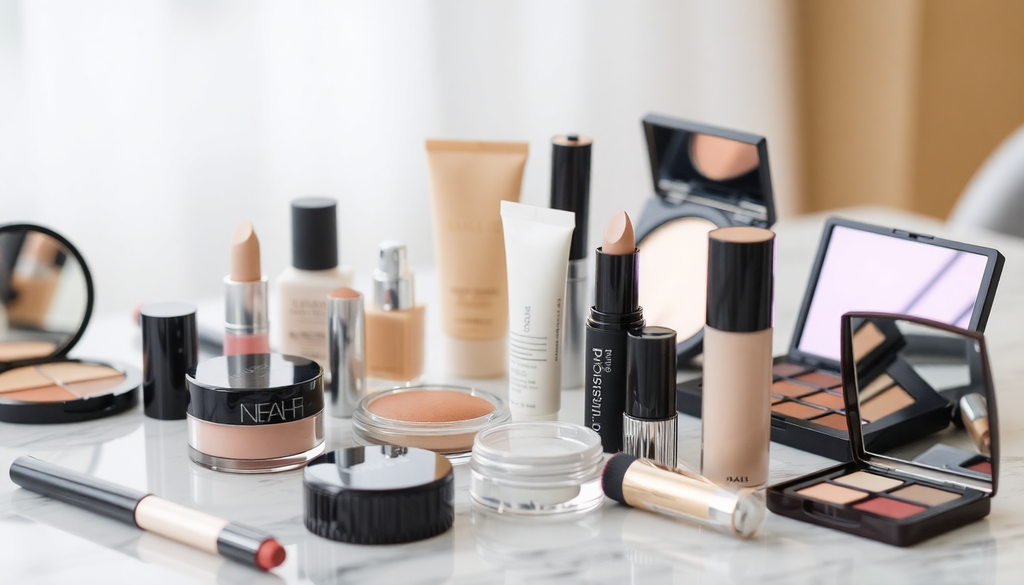
Unlocking Your Beauty Business: A Comprehensive Guide to Private Label Cosmetics with MOQ 100
Introduction
The beauty industry is experiencing unprecedented growth, driven by consumer demand for innovative and personalized products. For aspiring entrepreneurs, the allure of launching a beauty brand is strong, but the hurdles of product development and manufacturing can be daunting. This is where private label cosmetics come into play—a flexible and cost-effective solution. In this comprehensive guide, we will delve into everything you need to know about private label cosmetics, focusing on suppliers with no minimum order requirements. By the end of this article, you will be equipped with the knowledge to successfully unlock your beauty business potential.
What Are Private Label Cosmetics?
Private label cosmetics are products manufactured by one company that are sold under another company's brand name. This business model allows entrepreneurs to create their unique brand identity without the complexities of product formulation and manufacturing. Essentially, you can curate a range of cosmetics that align with your brand vision while leveraging the expertise of established manufacturers.
Benefits of Private Label Cosmetics
Choosing private label cosmetics has numerous advantages that can simplify your entry into the beauty market:
- Brand Control: You have full control over your brand image, including packaging, marketing, and pricing strategies. This autonomy enables you to tailor your brand to your target audience effectively.
- Cost-Effective: By avoiding the high costs associated with product development and manufacturing, you can allocate your budget towards marketing and brand building.
- Product Variety: Private label suppliers often provide a wide variety of products, from skincare to makeup, allowing you to build a diverse product line.
- Quick Market Entry: Private label cosmetics enable faster product launches since you are utilizing existing formulations, reducing the time it takes to bring your products to market.
- Flexibility: Suppliers with no minimum order requirements allow you to start small, making it easier to manage your budget and inventory.
Why Choose Suppliers with No Minimum Orders?
When starting a beauty business, managing inventory and financial risk is crucial. Here are several reasons why opting for suppliers with no minimum orders is advantageous:
- Lower Financial Risk: Starting with smaller orders allows you to test the market without a significant financial commitment. This way, you can gauge consumer interest before scaling up your inventory.
- Experimentation: Having no minimum order requirements allows you to experiment with different products and formulations, helping you discover what resonates with your audience.
- Inventory Management: Easier to manage stock levels and avoid overproduction, which can lead to wasted resources and increased costs.
- Scaling Opportunities: As demand increases, you can easily scale up your orders without being tied down to a specific quantity from the outset.
Finding the Right Private Label Supplier
Finding a reliable private label supplier is a critical step in your journey. Here are several factors to consider when searching for the right partner:
- Reputation: Research the supplier's reputation through online reviews, testimonials, and industry forums. A reputable supplier will have a track record of delivering quality products.
- Product Quality: Request samples to assess the quality of their products. Ensure that the formulations align with your brand values and meet consumer expectations.
- Customization Options: Check if the supplier offers customization for packaging, labels, and formulations. This flexibility is essential for establishing your unique brand identity.
- Shipping and Delivery: Understand their shipping policies, lead times, and costs. Reliable delivery is crucial to maintaining customer satisfaction.
- Customer Support: A responsive and helpful customer support team can make a significant difference in your partnership, especially when issues arise.
Steps to Launching Your Private Label Cosmetics Line
Launching your private label cosmetics line involves several key steps. Here’s a detailed breakdown of the process:
- Market Research: Conduct thorough market research to identify your target audience, their preferences, and current trends in the beauty industry. This insight will inform your product selection and marketing strategies.
- Select Products: Choose the types of cosmetics you want to offer based on your market research. Consider factors such as product demand, competition, and your brand's unique selling proposition (USP).
- Choose a Supplier: After identifying potential suppliers, evaluate them based on the criteria mentioned earlier. Build a shortlist of suppliers that align with your needs.
- Design Your Brand: Create an appealing brand name and packaging design that resonates with your target audience. Your brand identity should be cohesive and visually appealing.
- Launch Your Products: Develop a marketing strategy to promote your brand. This includes setting up an online presence through a website and social media, as well as planning promotional campaigns.
Marketing Your Private Label Cosmetics
Once your products are ready for launch, effective marketing is crucial for success. Here are several strategies to consider:
- Social Media: Utilize platforms like Instagram, Facebook, and TikTok to showcase your products. Create visually appealing content that highlights the benefits and features of your cosmetics.
- Influencer Collaborations: Partner with beauty influencers who align with your brand values. Their endorsement can significantly increase your brand's visibility and credibility.
- Email Marketing: Build an email list to keep customers informed about your product launches, promotions, and beauty tips. Personalized email campaigns can encourage repeat purchases.
- Content Marketing: Create valuable content related to beauty and cosmetics, such as blog posts, how-to videos, and tutorials. This not only attracts potential customers but also establishes your brand as an authority in the beauty space.
- Search Engine Optimization (SEO): Optimize your website and content for search engines to improve your visibility. Use relevant keywords, meta tags, and high-quality images to attract organic traffic.
Legal Considerations in Private Label Cosmetics
Before launching your private label cosmetics line, it’s essential to understand the legal aspects involved. Here are some key considerations:
- Compliance with Regulations: Ensure that your products comply with local and international regulations regarding cosmetic safety and labeling. This includes adhering to the FDA guidelines in the U.S. or the European Cosmetics Regulation.
- Trademark Registration: Protect your brand name and logo by registering them as trademarks. This prevents others from using your brand identity and helps establish your brand's legitimacy.
- Contracts with Suppliers: Draft clear contracts with your suppliers outlining terms, product specifications, and delivery agreements. This protects both parties and ensures a smooth working relationship.
Challenges and Solutions in Private Label Cosmetics
While the private label cosmetics business model offers many benefits, it also comes with challenges. Here are common challenges and potential solutions:
- Quality Control: Maintaining consistent quality across products can be difficult. Solution: Work closely with your supplier, conduct regular quality checks, and gather customer feedback to ensure quality standards are met.
- Market Saturation: The beauty industry is highly competitive. Solution: Differentiate your brand through unique formulations, sustainable practices, or a strong brand story that resonates with consumers.
- Supply Chain Issues: Disruptions in the supply chain can impact product availability. Solution: Establish relationships with multiple suppliers to mitigate risks and ensure a steady supply of products.
Success Stories: Brands That Started with Private Label Cosmetics
Many successful beauty brands began their journey with private label cosmetics. Here are a few inspiring examples:
- Fenty Beauty: Launched by Rihanna, Fenty Beauty quickly gained popularity for its inclusive range of shades. Initially, the brand collaborated with established manufacturers, allowing it to focus on marketing and brand identity.
- Glossier: Starting as a blog, Glossier transitioned into a beauty brand by leveraging customer feedback and private label products to create a line that truly resonated with its audience.
- e.l.f. Cosmetics: e.l.f. started with a focus on affordable beauty products and quickly grew by offering private label options that appealed to budget-conscious consumers.
Conclusion
Launching your beauty brand with private label cosmetics and no minimum orders is an incredible opportunity to enter the industry with lower financial risk. By understanding the benefits, finding the right suppliers, and effectively marketing your products, you can unlock your beauty business potential and thrive in this dynamic market. Remember to stay informed about industry trends, continuously engage with your audience, and adapt your strategies to ensure long-term success. Start your journey today, and transform your beauty brand dreams into reality!




